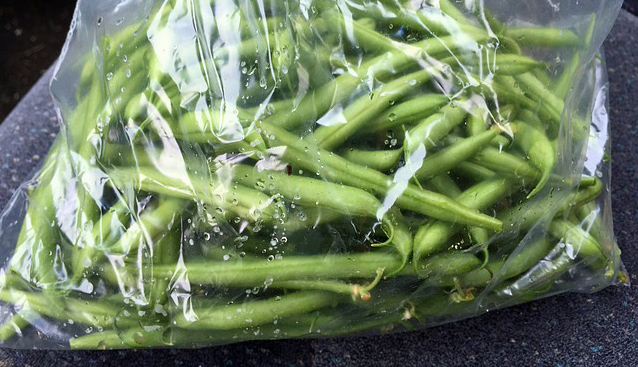New Zealand has taken a further step after banning plastic bags in supermarkets, and has now brought in a ban on thin produce bags.
The ban is part of a government campaign against single-use plastics.
Most New Zealand shoppers already take their own bags to stores after take-home plastic bags were banned in 2019.
In recent years, many countries have imposed a fee or ban on plastic bags.
“New Zealand produces too much waste, too much plastic waste,” Associate Environment Minister Rachel Brooking said. She added more than one billion plastic bags had been saved since the ban on thicker bags took effect in 2019.
The new move is expected to prevent the usage of 150 million plastic bags per year.
Critics have raised concerns that shoppers may just place groceries in disposable paper bags, which are still available in supermarkets. “It’s still worth doing this, but we really want to reduce single-use anything packaging,” Ms Brooking said. “So we want people to be bringing their own bags, and supermarkets are selling reusable produce bags,” she added.
Supermarkets are beginning to sell reusable polyester mesh bags for use with fresh produce.
Personally I don’t think replacing the single-use plastic bags with polyester mesh bags is the answer, as polyester is of course, plastic, and what happens when the polyester bags reach the end of their life?
Obviously, using reusable bags that you already own would be fine, whatever their material, but if you need to buy bags for use when shopping for loose produce, I would suggest natural fibre bags that can be recycled when they wear out.

Why should you use reusable bags for produce:
1. Environmental Impact: Natural fibre bags, such as cotton or jute, have a lower environmental impact compared to synthetic materials like plastic or nylon. Synthetic materials take a long time to break down and contribute to plastic pollution, whereas natural fibres are biodegradable and have a lower carbon footprint.
2. Resource Conservation: Using natural fibre bags promotes the conservation of resources. Synthetic materials like plastic require the extraction of fossil fuels, contributing to resource depletion and environmental degradation. On the other hand, natural fibres can be sustainably sourced and grown, reducing the strain on natural resources.
3. Recycling Potential: Natural fibre bags can be recycled when they wear out or are no longer usable. Recycling natural fibres helps reduce waste and minimizes the need for additional resource extraction. In contrast, many synthetic bags cannot be easily recycled, leading to increased waste accumulation.
4. Biodegradability: Natural fibre bags are biodegradable, meaning they break down into organic materials over time. This characteristic reduces the long-term environmental impact and prevents the accumulation of non-biodegradable waste. Synthetic bags, especially those made from plastic, persist in the environment for hundreds of years and contribute to pollution.
5. Consumer Safety: Natural fibre bags are generally considered safer for consumers, especially when used for carrying food items like loose produce. Synthetic bags may contain harmful chemicals or toxins that can leach into food, potentially posing health risks. Natural fibres are generally non-toxic and do not pose the same concerns.
6. Support for Sustainable Practices: By choosing natural fibre bags, you are supporting sustainable practices and responsible consumption. Opting for reusable and recyclable materials aligns with the principles of reducing waste, conserving resources, and promoting environmentally friendly choices.
7. Aesthetics and Appeal: Natural fibre bags often have an aesthetic appeal, providing a more visually pleasing alternative to synthetic bags. The natural texture and appearance of materials like cotton or jute can enhance the shopping experience and make it more enjoyable.
Overall, using natural fibre bags for loose produce shopping combines environmental benefits, resource conservation, recycling potential, consumer safety, and support for sustainable practices.
